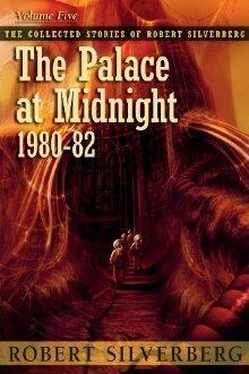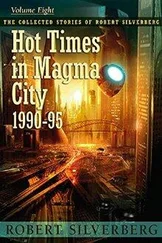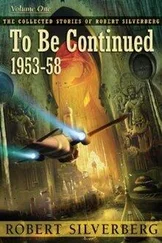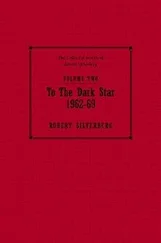Robert Silverberg - A Thousand Paces Along the Via Dolorosa
Здесь есть возможность читать онлайн «Robert Silverberg - A Thousand Paces Along the Via Dolorosa» весь текст электронной книги совершенно бесплатно (целиком полную версию без сокращений). В некоторых случаях можно слушать аудио, скачать через торрент в формате fb2 и присутствует краткое содержание. Год выпуска: 2013, ISBN: 2013, Издательство: Subterranean Press, Жанр: Фантастика и фэнтези, на английском языке. Описание произведения, (предисловие) а так же отзывы посетителей доступны на портале библиотеки ЛибКат.
- Название:A Thousand Paces Along the Via Dolorosa
- Автор:
- Издательство:Subterranean Press
- Жанр:
- Год:2013
- ISBN:978-1-59606-604-5
- Рейтинг книги:4 / 5. Голосов: 1
-
Избранное:Добавить в избранное
- Отзывы:
-
Ваша оценка:
- 80
- 1
- 2
- 3
- 4
- 5
A Thousand Paces Along the Via Dolorosa: краткое содержание, описание и аннотация
Предлагаем к чтению аннотацию, описание, краткое содержание или предисловие (зависит от того, что написал сам автор книги «A Thousand Paces Along the Via Dolorosa»). Если вы не нашли необходимую информацию о книге — напишите в комментариях, мы постараемся отыскать её.
A Thousand Paces Along the Via Dolorosa — читать онлайн бесплатно полную книгу (весь текст) целиком
Ниже представлен текст книги, разбитый по страницам. Система сохранения места последней прочитанной страницы, позволяет с удобством читать онлайн бесплатно книгу «A Thousand Paces Along the Via Dolorosa», без необходимости каждый раз заново искать на чём Вы остановились. Поставьте закладку, и сможете в любой момент перейти на страницу, на которой закончили чтение.
Интервал:
Закладка:
Sudden intense panic surged through him. He felt a buzzing in his kneecaps and fierce pressure in his bladder and stabbing pain at the back of his skull. He had a vision of himself being called into judgment in one of those huts, the prying, snooping, ignorant American arraigned for poking his nose where it did not belong, and found guilty and taken out behind the hill, two quick thrusts of the dagger and over the edge into the dry ravine. This is how we deal with meddlers, Frankish dog. It was absurd. These people might look sinister, but it was all in his overheated imagination; they were harmless peasants, simple shepherds and farmers, much closer to God than he would ever be and hardly likely to do evil to a stranger. Yet fear possessed him. Halfway up the hill he turned and ran back toward the village, feeling feverish, dizzy, more than half-crazed. The Arab yelled after him but did not pursue. Somehow Hornkastle managed to start his car, and in chaos, tears streaming from his eyes as they had not done since he was a child, he drove wildly back to the city, past his hotel, out toward the university area. Angry drivers honked and shook fists at him. Near the Knesset building he saw a public telephone and called Ben-Horin’s home, expecting nothing. Geula Ben-Horin answered. “Hornkastle,” he blurted. “I must come over at once.”
“Of course. Are you all right”
“Tell me how to get to your place.”
It was only five minutes away. He rang her bell and she peered out. A whiff of musky perfume enveloped him; she was wearing a sheer dressing-gown and nothing else, and he was unprepared for that, the absurd, comical, preposterous seductiveness of her, heavy breasts visibly swaying, all that voluptuous Mediterranean flesh. He said, “Your husband—”
“In Tel-Aviv. Come in. What’s wrong with you?”
She put a drink in his hand—the foul Israeli brandy—and he gulped it like medicine, and then a second one. She was warm, sympathetic, trying to find out what was the matter; he was barely coherent. Finally, as the brandy settled him a little, he managed to say, “I’ve just been to the mushroom village.”
“Ah.” She looked grave.
“Begging them to give me some. I couldn’t wait for your husband to get back from wherever the hell he’s been. I stood the waiting as long as I could and then I went out there. I talked the ear off some Arab, I reeled off a whole lot of hysterical drivel about wanting to be one with God, you know, the whole transcendental thing—” His voice trailed off in shame.
She said, “And they gave you some, and now it is beginning to upset your mind, is that it? It will be all right. There will be some hours of great delirium and then ecstasy and then gradually you will—”
“No, They didn’t give me any.”
“No?”
“The Arab told me to follow him and started to lead me toward some huts on the hillside. And I panicked. I thought it was a trap, that they were going to kill me for asking too many questions, and I ran back to my car, I drove, I—I—I fled here. To the only people I know in Jerusalem.”
Her eyes were warm with sorrow and pity and a sort of love, it seemed to him, and yet her mouth was quirked in what looked very much like contempt. “I think you are wrong,” she said calmly. “What you were afraid of was not that they would do harm to you, but that they really would give you the mushroom.”
He blinked. “How can you say that?”
“I think that is so. Often we turn in fear from that which we desire the most. You were in no danger from them, and you knew that. You were in danger from yourself, from your own troubled and tormented soul, and what you feared was—”
“Please. Stop.”
“—not what they would do to you but what you would see when the mushroom allowed you to look within.”
“No. Please.”
He was shaking again. He could not meet her gaze. She came close to him—she was nearly as tall as he was—and held him, comforting him, murmuring that she was sorry to have upset him when he was already in such a vulnerable state. He pressed himself against her and felt the tension draining from him. He felt like a child, a big foolish child. She was the great soothing mother herself, Isis, Astarte, Ishtar, and the power that she had over him frightened and attracted him all at once; if he could not let himself surrender to the god who was the mushroom, he would at least be capable of losing himself in the goddess who was His mother and consort.
“Come,” she said, taking his hand.
Easily she led him to the bedroom and with dreamy willingness he vanished into her warm billowing body, no longer caring, no longer resisting anything. He had no strength left. It was all very quick, too quick, and he collapsed abruptly into deep sleep from which he woke, equally abruptly, finding himself lying in her arms and for a moment not knowing who, how, where.
He stared at her, aghast.
Before he could speak she put her finger to his lips and said softly, “You are feeling better?”
“We shouldn’t have—your husband—”
“Life is very risky here. Any day the end might come. We live as though there are no second chances.” She winked. “Our little secret, eh?” Helping him up, finding his scattered clothes. “When he gets home I will tell him you called. He has been so busy, running everywhere, lectures, meetings—he has so little time. I am glad you came. About the mushroom village and what happened to you there: fear nothing. They will not harm you.”
“Will you tell him I went there?”
“No. He can find that out from you much better.”
“What am I going to do, though? I’ve bungled everything!”
“You are a Christian?” She smiled and touched her lips lightly to his. “Live in the hope of glorious redemption. Even bunglers are forgiven if there is a God. Forgive yourself and He will forgive you too, eh? Eh?” She drew him to her for a brief warm embrace. “Go, now,” she whispered. “It will be all right.”
For ten minutes Hornkastle sat behind the wheel of his parked car, groggy, stunned, before he could muster enough will to drive. All the manic energy in him was spent; he felt bleak, drained, desolate. All was lost. The sensible thing was to pack up and go to the airport and take the next plane out, but he was too numb even to do that. At the hotel he went to the bar for a few drinks and, in a stupor of guilt and bewilderment, dropped into bed.
He was still sleeping soundly when his telephone rang the next morning. Ben-Horin.
“Is it too early for you?” the Israeli asked.
Sunlight flooded the room. “No, no, I’m up.” The hand holding the receiver shook. “Good to hear from you again.”
“Will you meet me at eleven by Saint Stephen’s Gate?” Ben-Horin said brusquely, icily.
The day was bright and warm. Crowds of tourists swarmed about the Old City: the climax of the Easter season was at hand. From a distance of twenty yards Hornkastle could feel the anger radiating from Ben-Horin, and it was all he could manage to force himself to approach the little Israeli.
Ben-Horin said, “How could you have done it?”
“Sheer idiotic spinelessness. She gave me a couple of drinks, and I was already overwrought, I guess, and—”
In amazement Ben-Horin said, “What in the name of Mohammed are you talking about?”
“I—she—” He could not say it.
Ben-Horin shook his head furiously. “You lunatic, how could you possibly have gone to the village after all my warnings about moving cautiously? You have done me harm that is perhaps irreparable. This morning I went to see Yasin, the falafel-peddler—he pretended not to know me. As if I am police. I could hardly believe it when Geula said you had been to the village. Now they want nothing more to do with either of us. My relationship with them is severed and possibly cannot be rebuilt. How could you? The discourtesy, Hornkastle, the absolute stupidity—”
Читать дальшеИнтервал:
Закладка:
Похожие книги на «A Thousand Paces Along the Via Dolorosa»
Представляем Вашему вниманию похожие книги на «A Thousand Paces Along the Via Dolorosa» списком для выбора. Мы отобрали схожую по названию и смыслу литературу в надежде предоставить читателям больше вариантов отыскать новые, интересные, ещё непрочитанные произведения.
Обсуждение, отзывы о книге «A Thousand Paces Along the Via Dolorosa» и просто собственные мнения читателей. Оставьте ваши комментарии, напишите, что Вы думаете о произведении, его смысле или главных героях. Укажите что конкретно понравилось, а что нет, и почему Вы так считаете.












